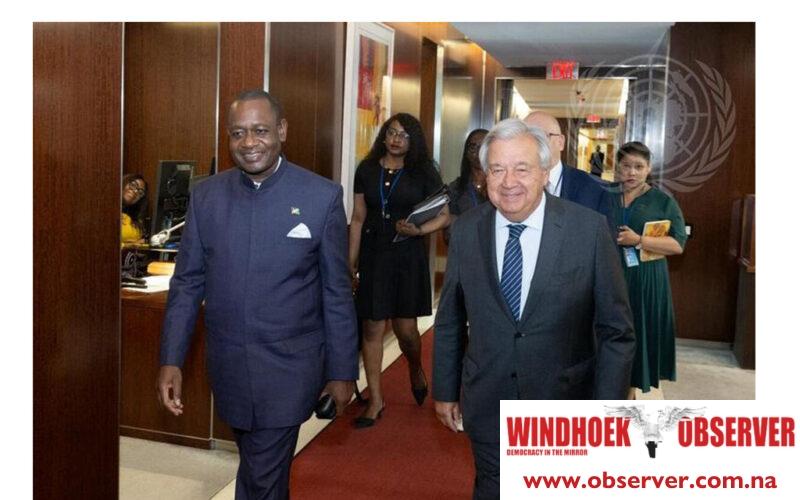Niël Terblanché
International relations minister, Peya Mushelenga wants the United Nations Security Council (UNSC) to address the historical exclusion of Africa from permanent membership.
Mushelenga was speaking at the UNSC high-level debate on international peace and security that took place in New York on Monday.
“Africa cannot continue to stand as a passive spectator in the global political field,” he said while stressing that the current geopolitical power distribution sidelines an entire continent from crucial decision-making processes.
Mushelenga stressed that the reform of the UNSC is not a request for favours but a legitimate plea for justice and equality.
“Maintaining the status quo impedes democratic global governance, contradicting the fundamental principles upon which the United Nations is founded,” he stated.
Namibia, aligning with the African position as articulated in the Ezulwini Consensus and the Sirte Declaration, is demanding two permanent seats with all the privileges and prerogatives extended to the current permanent members, as well as two additional non-permanent seats on the UNSC.
Mushelenga stated that the call is not just for Africa but for the entire world community, to ensure that the UNSC reflects present-day realities and can effectively maintain international peace and security.
“The Council must evolve to be more representative, inclusive, and reflective of the world it serves,” he said.
He referenced Namibia’s experience with the UNSC during its struggle against apartheid and colonialism.
Mushelenga also pointed out that Africa’s patience is not infinite, particularly given the continent’s growing youth demographic, whose tolerance for the slow pace of reform is wearing thin.
He urged the UNSC to take tangible steps towards reform, thereby restoring trust in its relevance and legitimacy.
“Let us end the injustice against Africa’s exclusion and deliver a council that truly serves humankind equitably and without discrimination,” he stated.
Mushelenga argues that the call for UNSC reform goes beyond securing seats for African nations, as it also aims to adequately represent the voices of over 1.3 billion people across 54 countries in the highest decision-making body responsible for international peace and security.
He explained to the assembly that the United Nations’ founding principles of justice, equality, and democracy are the driving forces behind the push for UNSC reform.
“The time for reform is now. The world cannot afford to wait any longer to correct the historical wrongs and build a future where all nations, regardless of size or power, have a voice in the decisions that affect us all,” he concluded.




